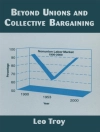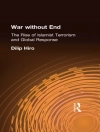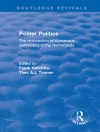By the early twenty-first century neo-nationalist forces have established themselves in a number of the world’s large regions and subcontinents. From Australia to South Asia, in Eastern and Western Europe, comparable parties and movements have positioned themselves in national parliaments and governments, with some considerable impact on state power. In contrast to right-wing extremist parties in the past, these recent movements mostly operate within legal parliamentary channels, using essentialized notions of local culture to mobilize against real and alleged threats to local identities of status, gender, religion, nationhood and ethnicity.
Prompted by this near-simultaneous rise to political influence of more than a dozen apparently similar parties across Western Europe, this collection offers a range of European case studies with selected global examples, such as the Front National, the late Pim Fortuyn, India and the BJP, and Pauline Hanson and her One Nation Party in Australia. It takes up the theoretical and methodological challenges posed by this phenomenon and asks what distinctive contributions anthropology might make to its study.
Innehållsförteckning
Acknowledgements
Introduction: Neo-nationalism in Europe and Beyond
Marcus Banks and Andre Gingrich
PART I: CONCEPTS AND METHODS
Chapter 1. Nation, Status and Gender in Trouble? Exploring Some Contexts and Characteristics of Neo-nationalism in Western Europe
Andre Gingrich
Chapter 2. Performing ‘Neo-nationalism’: Some Methodological Notes
Marcus Banks
PART II: CASE STUDIES FROM WESTERN EUROPE
Chapter 3. Imagined Kinship: The Role of Descent in the Rearticulation of Norwegian Ethno-nationalism
Marianne Gullestad
Chapter 4. The Emergence of Neo-nationalism in Denmark, 1992–2001
Peter Hervik
Chapter 5. ‘At Your Service!’: Reflections on the Rise of Neo-nationalism in the Netherlands
Thijl Sunier and Rob van Ginkel
Chapter 6. Neo-nationalism and Democracy in Belgium: On Understanding the Contexts of Neo-communitarianism
Rik Pinxten
Chapter 7. ‘Being the Native’s Friend Does Not Make You the Foreigner’s Enemy!’Neo-nationalism, the Freedom Party and Jörg Haider in Austria
Thomas Fillitz
Chapter 8. Neo-nationalism or Neo-localism? Integralist Political Engagements in Italy at the Turn of the Millennium
Jaro Stacul
Chapter 9. Regarding the Front National
Gerald Gaillard-Starzmann
PART III: EUROPEAN PERSPECTIVES
Chapter 10. ‘Healthy Native Soil’ versus Common Agricultural Policy: Neo-nationalism and Farmers in the EU, the Example of Austria
Gertraud Seiser
Chapter 11. New Nationalisms in the EU: Occupying the Available Space
Maryon Mc Donald
PART IV: GLOBAL PERSPECTIVES
Chapter 12. Neo-nationalism in India: A Comparative Counterpoint
Mukulika Banerjee
Chapter 13. Nationalism and Neo-populism in Australia: Hansonism and the Politics of the New Right in Australia
Bruce Kapferer and Barry Morris
PART V: AFTERTHOUGHTS
Afterthoughts
Ulf Hannerz
Notes on Contributors
Subject Index
Name Index
Om författaren
Marcus Banks (1960-2020) was Professor of Visual Anthropology at the University of Oxford, and author of Organizing Jainism in India and England (Clarendon Press, 1992); Ethnicity: Anthropological Constructions (Routledge, 1996) and Visual Methods in Social Research (Sage, 2001), as well as numerous journal articles and book contributions.












